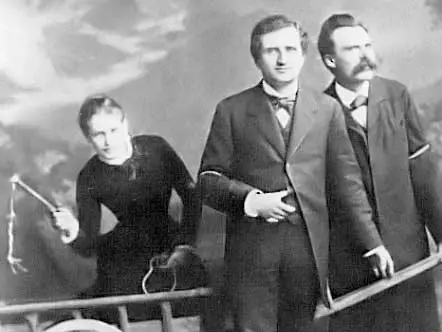“If a tree falls in a forest …”, and quantum mechanics
‘If a tree falls in a forest and absolutely nobody is around to hear it, does it make a sound?’ – This question has been asked quite a few times over the years. The first known formulation of this question was written back in 1883 in The Chautauquan, an educational magazine. Its popularity is probably due to its publication in the well known Scientific American, a year later. This is a bit weird as it is normally considered a philosophical question, and it is (well, kind of).
In science there is a saying called Newton’s flaming laser sword stating: “what cannot be settled by experiment is not worth debating”. Accordingly, our question (“If the tree falls…”) should not be part of the scientific debate. However, while it is true that that this question cannot be directly answered by the scientific method, it is also true that it can be indirectly answered by scientific theories.
A typical philosophy manual would define sound as a perception and conclude that no sound can exist without a brain to experience it. This answer is rather boring so we are gonna go a little bit further than that. By “a little bit”, I mean “quite a lot”. In fact, we are going to think way too much about this and push the question to its ridiculous limits. Doing so, furthermore, we are going to use a bit of ‘quantum mechanics’. Don’t worry! Everything is going to be fine.
First, what the problem really implies is that the tree has no observer. What is an observer? It’s quite simple: if you are receiving any amount of information from a given phenomenon, you are an observer of this phenomena. But, this implies more than you might think. In order for something to have no observer, it needs to have absolutely no interaction with its surroundings and therefore be perfectly isolated. The simple fact that you are touching something, that is touching something else, that is touching yet another thing – makes you an observer of this thing, an indirect observer, but one nonetheless. This is to say, that according to quantum mechanics, you are observing every single human being at this very moment.
Let’s move to the second part. You might think that things behave the same if we don’t observe them, but that would be wrong. Let’s say that we know there is a particle in a certain area but we don’t know where exactly. Until we measure it, this particle will behave as if it is in every possible position at the same time. More accurately, it behaves like a wave function representing the probability of every possible positions. Measuring the particle will make the wave function collapse onto a single random position. This may be hard to believe, but this principle is called quantum superposition, it is real and well known in physics.
Some of you might have heard of Schrödinger’s cat. (And if not, there is a really funny, though not entirely accurate, scene from The Big Bang Theory). Well, the exact same principle is involved. Quantum superposition happens all the time on the subatomic level. However, it practically never occurs with everyday objects because these are virtually impossible to isolate from their surroundings. This is the reason why all of this probably seems extremely abstract.
Back to the tree! Is it possible to perfectly isolate the tree so that it doesn’t have any observer? Of course this is not possible on earth. But we did say that we were going to think way too much about this. So let’s imagine a falling tree, on a planet, surrounded by a vacuum so large that light from any other star in the universe didn’t have enough time to reach the said planet. We can say with fair certainty that this tree and this planet have absolutely no interaction with the rest of the universe. Let’s be clear on one thing: this scenario is ridiculously unlikely, even though ti is theoretically possible. Moreover, if the universe is infinite, it is also certain that such a tree exists somewhere (cf. infinite monkey theorem).
But back to the our initial question: If a tree falls in a forest and absolutely nobody is around to hear it, does it make a sound? Knowing all that we have seen so far, we can now say that the question itself doesn’t make any sense. It is a paradox! If nobody is around to observe the tree, it is in a superposed state. Thus, it doesn’t make any sense to say that it is falling or not falling. It is in every states at once, both falling and not falling, making sound and not making sound.
Now, to some comedy!
https://www.youtube.com/watch?v=3DjfZpwdN-o
Thanks to Hipster FreeDoum for providing the script. He is a hipster, so he doesn’t have facebook or twitter to follow him on.
I, on the other hand do, so follow me (links on the side and above). Sign up for Paradox of the Day mailing list and please visit our Patreon support page.





